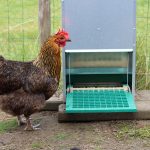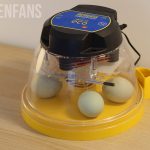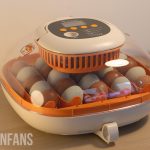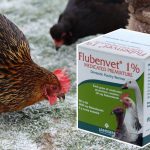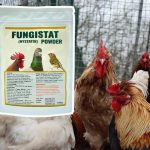Do Chickens Like Water Baths?
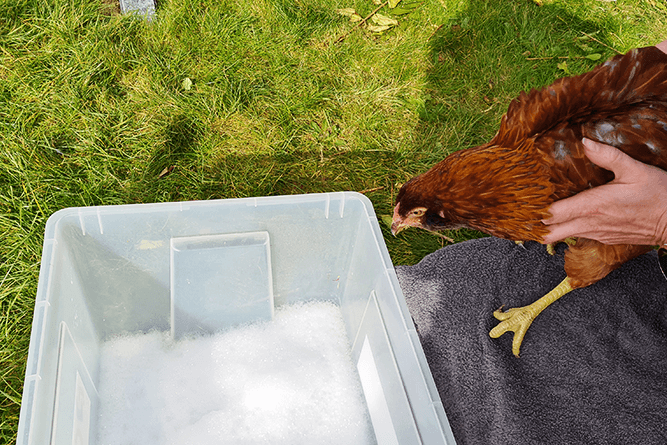
No. Most chickens don’t like to bathe in water. At least not at first.
Bathing your chickens in warm water will benefit them in some cases (for example, pasty butt in chicks, flystrike, or dirty vent area). Still, overall it doesn’t have significant health benefits and will likely cause stress.
Chickens clean themselves and don’t need an ordinary bath. However, when training your chickens from a young age to take a bath regularly, they’ll get used to it and like the extra pampering. But it’s primarily unnecessary and can even harm your chickens when done wrong.
If you want to cool down your chickens during a heatwave, you don’t have to provide a water bath as chickens regulate their own body temperature. Just make sure they have plenty of water, shade, and a well-ventilated coop!
How do chickens clean themselves?
Chickens are clean animals, keeping their feather coat shiny and parasite free. Keeping themselves clean doesn’t involve a regular bath with water and soap. It’s all about dust bathing and preening their feathers.
Preening
When chickens preen their feathers, they’re grooming themselves. Not only to make their feathers look good but mainly to let them perform their task, which is to insulate and provide waterproofing.
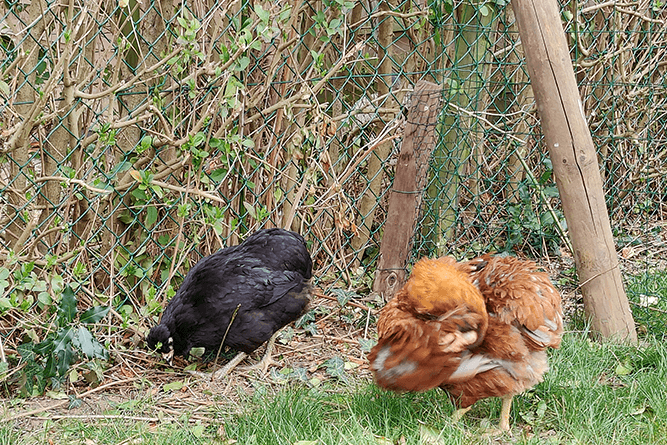
Chickens have an oil gland at the base of the tail, just in front of the tail feathers. This gland plays a vital role in waterproofing the feathers. Chickens rub their head, beak over the oil gland and apply the substance over the body, wings, and legs. The main objective of applying this waxy substance over the feathers is to waterproof them. Spreading the oil over the legs keeps the scales flexible and supple.
A group of chickens often preens each other instead of themselves.
Dust Bath
Dust bathing is a favorite activity for chickens and functionally important behavior. They love to roll around in the loose sand, but it also cleans them. Provide enough dust baths inside the chicken run as most flocks like to dust bathe simultaneously. The dust bath itself doesn’t need to be fancy. Dig a hole in the ground and fill it with loose garden or construction sand (not play sand). Or DIY a dust bath with a wooden crate or an old kids’ pool.
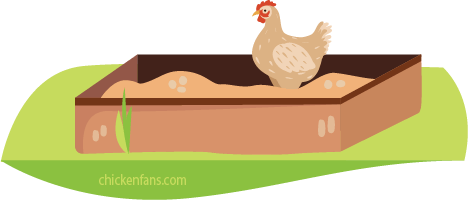
Chickens don’t bathe in water as humans do. Taking a dust bath is their way to keep themselves clean and prevents parasites such as mites and lice from affecting your birds. On the one hand, it realigns the feather structure and removes skin lipids, so the feathers don’t become too oily. And on the other hand, dust bathing is an excellent parasite repellant as the sand or dust coats the parasites breathing pores.
After rolling around in the sand, your hens shake off all excessive sand, and they’re ready to go!
Do chickens like water?
No. However, chickens aren’t scared of water; most aren’t fond of it. They are very cold hardy animals and can stand cold temperatures and rain showers. Their waterproof feathers provide them with a raincoat, but chickens rarely take a birdbath by choice, unlike other birds. There is no need to provide a chicken pool or large birdbath inside the run, as they probably won’t use it.
It might be tempting to install a kids pool or birdbath inside the run during hot summers. If you want to try it out, be our guest! When filling up the pool, don’t use too much water. A couple of inches is enough, just to splash their feet around. A better way to keep your hens cool during hot temperatures is to provide extra shade and a well-ventilated chicken coop.
When to bathe chickens?
In some cases, a chicken needs extra care—especially when vent feathers are soiled with poop or in the case of flystrike.
Flystrike occurs when flies lay eggs in the chicken’s vent area, where it’s warm and moist. After laying, the eggs turn into larvae after 8 to 12 hours. The larvae need food and start eating the flesh of the chicken’s vent area, which causes a lot of pain to the bird.
Other health issues that soil your chicken and she’s not able to clean herself can also be a reason to give a bath.
How to bathe chickens?
When only the vent area is soiled, cleaning your chicken from head to toe is unnecessary. A bath can remove the natural oils they’ve carefully applied, so you only have to wash the soiled area of the chicken.
Essential supplies:
- A bathtub (sink or other)
- Pet shampoo
- Towels
- Rubber gloves
Put on dirty clothing, as you will get wet (soaked?) when a chicken starts to flap her wings inside the tub. Chickens don’t like to be bathed at first, so they will try to escape.
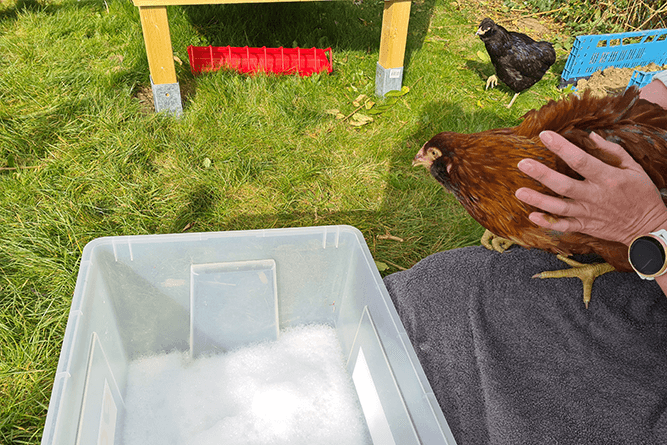
Carefully put your chicken in the tub filled with lukewarm water, and hold her gently but firmly so she can’t escape. Let the feathers soak before applying a small amount of pet shampoo. Gently wash all dirt off, don’t pull your chickens’ feathers; let the soil come of itself. Please don’t leave your chicken alone, as they can fall asleep and drown inside the tub.
After washing, rinse with water until all shampoo and dirt have come off, and wrap your chicken in a large towel to dry. You can let the hen dry in the open air when the outside temperature is high. But in colder months, use a hairdryer to dry their feathers. Use low heat and low ventilation when using a hairdryer.
Once your chicken has dried up, she’s ready to rejoin the flock.
Let’s sum things up
Chickens aren’t scared of water, and they can stand rain showers. However, that doesn’t make them like water.
In most cases, chickens clean themselves by dust bathing or preening, so regular water baths are unnecessary. Only when your chickens’ feathers are soiled with poop or other sticky substances should you consider washing them with water and shampoo. Always dry the chickens off before releasing them back into the chicken run.

